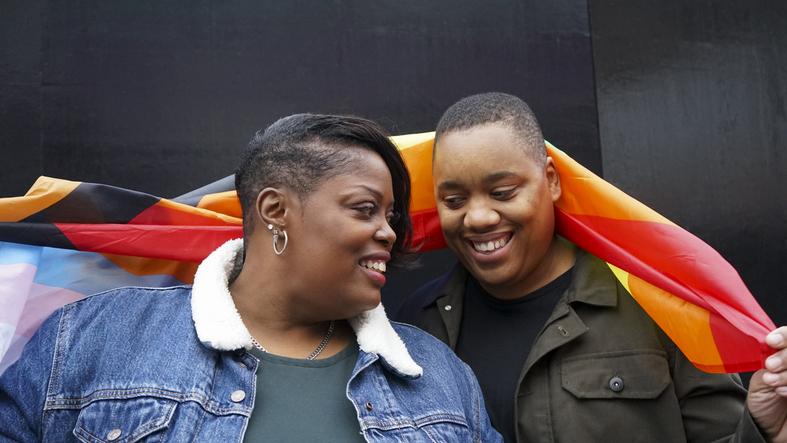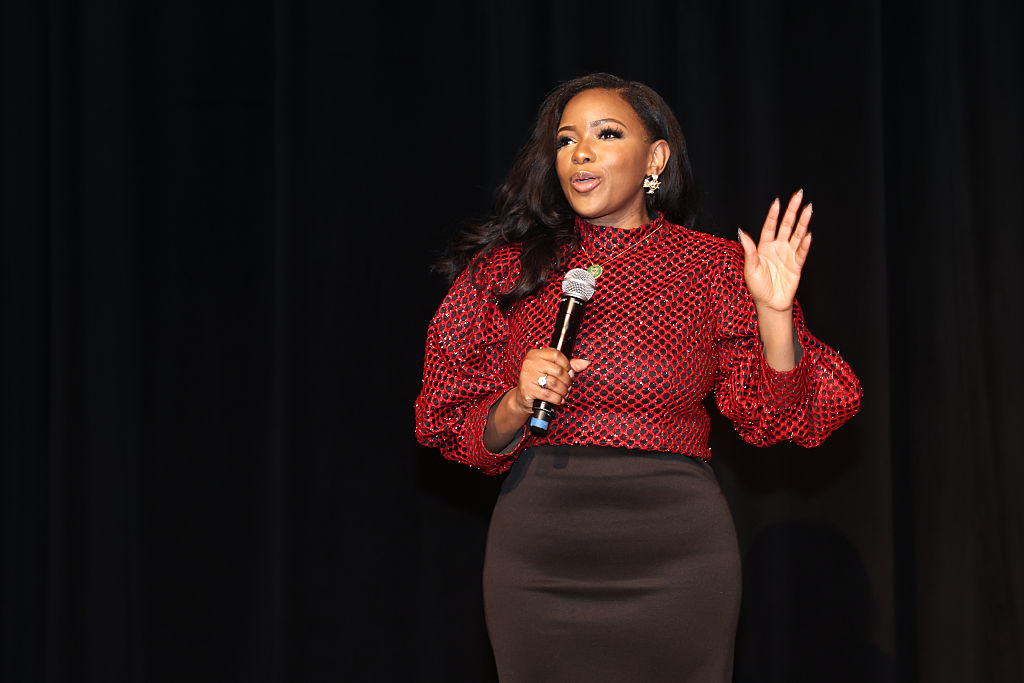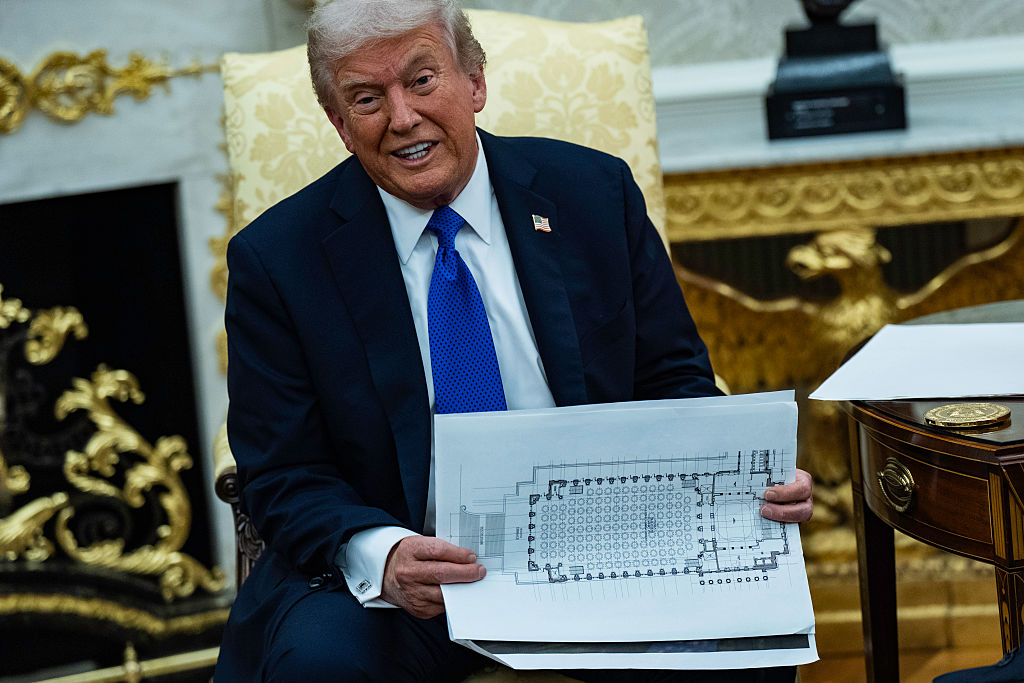SCOTUS Just Erased The LGBTQ+ Community With 1 Ruling
Erased In The Name Of ‘Choice’: How This Moment Echoes Our Oldest Wounds

What if I told you the United States government once made a sweeping move to erase the necessary stories and experiences of individuals who have been part of this country’s fabric from its very inception? People whose brilliance, labor, and culture helped build this nation, yet their stories were deemed too dangerous, too complicated, too “inappropriate” for children to learn. Who do you think those stories were about?
Before you answer, consider the strategy: remove them from books, silence them in classrooms, pretend they were never there. Tell children that these lives are not essential for becoming well-rounded, compassionate, and knowledgeable human beings, not just about math and science, but about humanity and life itself.
My lens: An educator and a Black woman
As a former adolescent health educator, as a Black Trans woman, as a sexual health expert, and as someone who has shaped laws and policies for youth wellness nationwide, I hold this topic close to my heart.
I believe parents should have the right to guide their children’s education and protect them from teachings they truly feel they cannot process or reconcile with their values.
But let’s keep that same energy everywhere. Shouldn’t Muslim students be able to opt out of classrooms in Texas where the Ten Commandments are plastered on every wall? Shouldn’t Black children in Florida be able to walk out when a curriculum dares to describe slavery as something that “benefited” us? Shouldn’t queer kids — and even straight kids with queer families — be able to leave when a lesson teaches them that their loved ones are going to hell?
My experience raising and protecting Black children
Beyond my work as an educator, I have lived this responsibility in my own life. After the passing of both of my parents, I raised my youngest sister from age 12 to 18. I was a step-parent for six years during my marriage, a village auntie, and a mentor to countless young people in and out of classrooms.
As Black parents and caretakers, we are constantly positioned to have our choices robbed from us while being blamed for whether our children succeed or fail in a system not designed for them to thrive. Many of us have experienced that same stripping away of choice and quality education firsthand — the same wounds we are now expected to navigate for our children.
I want to ask us: do we not find it peculiar that these are the topics they’re choosing to fight for Black parents to have “choice” over? Where is the same fierce advocacy for affordable access to extracurricular activities? For ensuring our children have coaches, mentors, and every support they need to succeed?
At this very moment, they are dismantling the Department of Education, cutting resources for Black children with autism or developmental barriers, and removing the very remedies that allowed us to hold systems accountable and ensure our kids received what they deserved.
Yet they will take a book about two princesses falling in love — in the most Disney-esque, harmless context — all the way to the Supreme Court.
What does that tell us about what “choice” really means in this moment?
Comprehensive sex education: what we’re really missing
And what about comprehensive sex education — real, robust education that does more than talk about condoms and abstinence? If your understanding stops there, you likely never had comprehensive sex education at all.
For generations, Black youth have been denied this information, left to make critical decisions about their bodies without the tools they need. We are, in essence, driving 18-wheelers without a commercial license.
Comprehensive sex education should include learning about LGBTQ+ communities, different ways to love and form relationships, and how these realities intersect with our health. In a time when young people aren’t strictly “identifying” as queer, but simply living, loving, and exploring, they deserve the information that will keep them safe.
Parents often believe that by shielding their children, they’re preventing them from being “led astray.” But I’ve watched lesbian daughters come home pregnant, gay sons make their parents unexpected grandparents — all because they were denied the education that could have kept them healthy and whole. We think these conversations are optional until the consequences show up in our living rooms.
The trap of selective “choice”
What does it mean when “choice” is only celebrated when it aligns with erasure? Justice Sotomayor, joined by Justice Ketanji Brown Jackson, said it clearly in her dissent: “The Constitution does not guarantee citizens a right entirely to avoid ideas with which they disagree.”
Schools are meant to prepare children for a world where Black, queer, immigrant, and Muslim people live, love, and contribute alongside them.
But beyond that, let’s talk about the moment we are in as Black people. While “choice” is being weaponized to erase queer stories and shield some families from discomfort, laws are sweeping across this land that rob Black people of choice — from the right to vote freely, to reproductive autonomy, to safe housing and dignified healthcare.
We are watching “choice” become a Trojan horse, rolled into our communities under the banner of protection, only to unleash a wave of erasure and control that we have seen before. This is how oppression gets rebranded as something we chose.
Historical echo: tied to Black erasure
This tactic is not new. After Nat Turner’s rebellion in 1831, laws banned Black literacy because reading meant freedom. Knowing our own stories meant we might imagine liberation and demand it.
Since then, we’ve watched our history softened, rewritten, or outright erased. Today, that same strategy lives in book bans, whitewashed curricula, and the rewriting of our pain into polite footnotes.
Now, this playbook is being used against queer and trans communities — a mirror of the same tactic used to control us.
Invitation to lean in
As Black people, we know what it feels like to have our humanity declared “too much” or “too complicated” to teach. We know what it feels like to be erased because others cannot control us or understand us.
I understand that the evolution of queerness, and how it shows up today, can feel overwhelming. But instead of turning away from what scares us, what if we leaned in? What if we transformed the unknown into the understood — not just for ourselves, but for our children?
Justice Sotomayor wrote: “Public schools offer children of all faiths and backgrounds an education and an opportunity to practice living in our multicultural society. That experience is critical to our Nation’s civic vitality.”
If we refuse to challenge this strategy of erasure now, the boomerang of oppression — currently aimed at queer and trans communities — will return to our yard. It always does.
Dominique Morgan, Sexual Health Expert, Adolescent Health Educator and Advocate, is an award-winning artist, philanthropist, and the Founder & CEO of Starks & Whitiker Consulting. Her work has been featured in Forbes, MTV, Essence, and more. Follow her on TikTok @thedominiquemorgan.
SEE ALSO:











